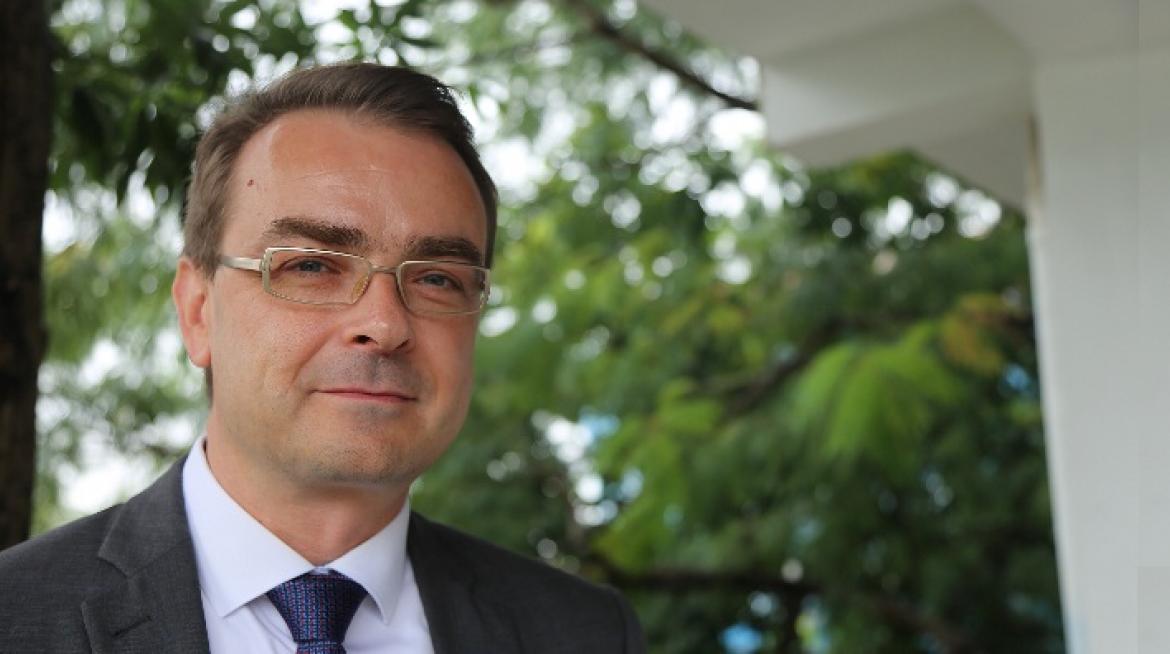
This week on #LIFTDonorProfiles, we invite you to meet Mr Claude Jentgen, Chargé d'Affaires for the Grand Duchy of Luxembourg of the Embassy’s Development Cooperation office for Vietnam, Laos and Myanmar, based in Hanoi.
LIFT: Please tell us a little bit about yourself
I have been in my current post as Chargé d’Affaires at the Luxembourg Embassy in Hanoi for about two years now. Being, at the same time, head of our office for development cooperation, covering three countries – Vietnam, Laos and Myanmar – is a very interesting task and an opportunity to work on the different challenges these three countries face due to their specific socio-economic and cultural contexts, while also seeing the bigger picture of common regional issues. I previously lived in the region in the early 2000’s and have visited Myanmar on numerous occasions since my first visit in 1997, following its evolution and developing an interest and thorough appreciation of Myanmar’s people, history and cultural heritage.
LIFT: Please tell us about Luxembourg's relationship and goals with respect to Myanmar?
 Luxembourg itself looks back to a history that includes difficult times characterised by poverty and waves of emigration. Based on this experience and the awareness that, as a multicultural and small country, international solidarity is very important, Luxembourg lends its support to developing countries and has a commitment to allocate 1% of its GDP to official development assistance.
Luxembourg itself looks back to a history that includes difficult times characterised by poverty and waves of emigration. Based on this experience and the awareness that, as a multicultural and small country, international solidarity is very important, Luxembourg lends its support to developing countries and has a commitment to allocate 1% of its GDP to official development assistance.
Luxembourg’s development cooperation focuses on about nine main partner countries which face important challenges in poverty reduction. From a thematic point of view we often focus on the sectors of rural development, health and vocational training including in the tourism sector. It was Luxembourg’s experience in this last sector, gained in Laos and Vietnam, which led to a request by the Myanmar authorities for assistance in human resource development in the tourism and hospitality sector. A first major bilateral project located at the Ministry of Hotels and Tourism started earlier this year. Given the priorities of the Myanmar government in addressing poverty challenges and Luxembourg’s involvement in rural development in similar socio-economic environments in Laos and Vietnam, we identified rural development - specifically in eastern Shan State - as a second focal sector for future engagement.
LIFT: Where does LIFT fit in?
Support to LIFT is part of Luxembourg’s focus on rural development. Globally, but also in its priority countries, Luxembourg is an active supporter of a multilateral approach and in particular of the possibilities this approach provides in engaging with the government through providing specific knowledge and sharing experiences. As such, it is a natural choice to support LIFT as one of the main platforms for dialogue between donors and the government, for piloting a variety of initiatives in different regions of the country, for facilitating learning and exchange of best practices among all stakeholders, and for promoting effective use of development resources through a common donor approach.
LIFT: What particular challenges do you see for livelihoods development in Myanmar? How do you think these can be overcome?
As we have a longstanding experience in Laos and Vietnam and are a quite recent bilateral partner for Myanmar, we tend to compare the situation with challenges faced in these countries. Of course, Myanmar has a different historical background and also culturally and politically there are substantial differences. However, I think there are also many similarities, including in the livelihood systems. Poverty rates in the three countries are higher in ethnic minority areas, which are often at the same time remote and mountainous areas. Difficult access, linguistic diversity, cultural barriers, insufficiently adapted decentralisation, lower agricultural productivity of uplands are all challenges which affect these populations in the two countries where we already work, as well as in Myanmar.
I think one of the main challenges is to develop holistic approaches which allow empowering populations in these difficult areas, so that they can actively participate in fostering socio-economic development in their communities. I also think that with its country-wide approach focusing on bringing together different experiences from a large variety of stakeholders, LIFT is well placed to develop and propose models and approaches which can respond to this challenge.
LIFT: What legacy would you like LIFT to have?
Of course, the most important legacy I would like to see is a sustainable change in people’s livelihoods in remote and rural areas in Myanmar. But I also hope that LIFT can lead to putting in place a dialogue between the government and rural populations to define and implement a common vision for the development of rural areas. This would then confirm that LIFT contributed to strengthening participatory and evidence based policy making in the sector. Finally, I hope that a network of different actors including NGOs, research organisations, think thanks, etc., will continue to search for innovative and best adapted mechanisms to narrowing the development gap between rural and urban areas.
LIFT: How would you like to see Myanmar in ten year's time?
Myanmar has made significant progress over the last few years and I hope that political and economic developments will continue in this line. Other countries in the region, like Indonesia, have proven that a peaceful transition to a vibrant democracy is possible. Of course there are many challenges such as rising inequalities, or assuring participation in the political systems of all population groups no matter which ethnic or religious background they have. It will also be challenging to develop the industrial sector while at the same time assuring environmental protection, decent working conditions and developing a fair and just taxation system.
Read more about the Grand Duchy of Luxembourg's development programme here


